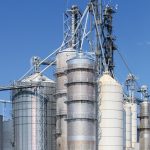
Tag Archives Environment

Setting seed for 2024’s marginal acres
Dormant seeding can make the most of marginal land next year

Opinion: Carbon tax makes Canadian food production less competitive
Recent claims that the carbon tax has little effect are poorly thought out

PWCP inaugural uptake numbers in
Prairie Watersheds Climate Program funds were handed out to 731 Manitoba producers in 2023

Prairie wetlands emissions lower than expected
Research from Ducks Unlimited Canada used high-tech towers to measure greenhouse gas coming off wetlands

Livestream beams view from Manitoba pasture
Langruth-area ranchers teamed up with McDonalds to highlight the beauty and benefits of Canadian grasslands

Comment: Farmers the victims of food company decarbonization
Farmers are bearing the brunt of big food companies’ decarbonization efforts. Here’s why
The planet continues to get hotter
Global air and ocean temperatures are at record levels

Senators get technical on Bill C-234
Clean grain drying technology years away, experts tell Senate committee

Solid footing for Manitoba’s winter cereal crops
The fall had some quirks, but an open seeding window boosted interest in the crop

Nature’s dazzling light shows
Water droplets and ice crystals in the atmosphere are media for the artwork



